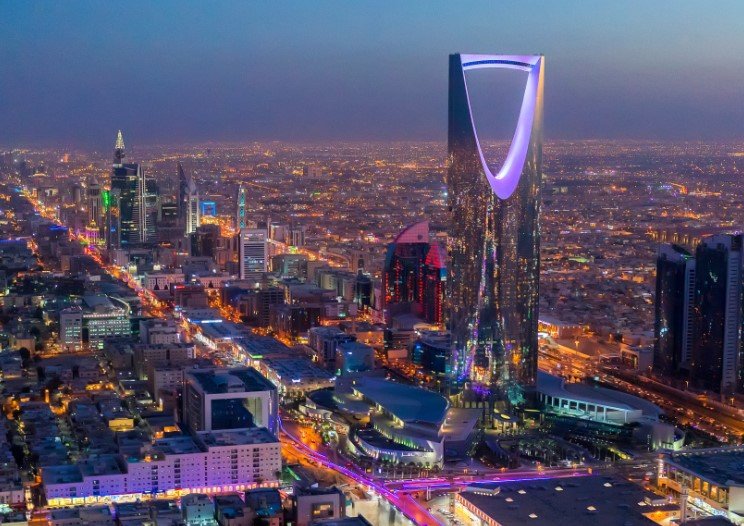U.S. engineering giant to steer infrastructure delivery for Riyadh’s six-square-kilometre World Expo site
Saudi Arabia has officially tapped U.S. engineering powerhouse Bechtel to manage one of its most ambitious urban projects yet — the site for World Expo 2030 in Riyadh.
The contract, announced Wednesday, gives Bechtel the reins to oversee infrastructure development across a sprawling 6 sq. km site. From roads and utilities to public spaces and early works, the firm’s responsibilities are sweeping. And that’s just the start — their role will extend beyond the Expo’s six-month run, with a mandate to help turn the area into a lasting urban hub focused on sustainability, culture, and commerce.
The Project at a Glance: Big, Bold, and Buzzing with Vision
World Expo 2030 Riyadh isn’t just another event. It’s a statement.
The project is expected to draw 42 million visitors over half a year. That’s more than twice the population of Saudi Arabia. Add to that 195+ participating countries, 29 global organizations, and a theme focused on “Foresight for Tomorrow,” and it becomes clear: this isn’t about building pavilions. It’s about building the future.
For Bechtel, a firm that’s had its name stamped on projects like Jubail Industrial City and the Riyadh Metro, this marks a return to familiar territory — but with higher stakes.
The Expo site will later morph into a sustainable district. Green tech, arts, education, and retail are all expected to take root once the flags come down.
Just one sentence here: The show might be temporary, but the footprint it leaves behind won’t be.

What Bechtel Will Actually Do on the Ground
Bechtel isn’t there to pour concrete or stack steel beams. Its job? Keep the entire machine running.
The company will act as the Project Management Consultant (PMC), overseeing how contractors, engineers, and city planners collaborate on a dizzying range of tasks. Think of it as the conductor of a massive construction orchestra.
The scope includes:
-
Coordinating early works and land prep
-
Managing utilities like water, power, and telecoms
-
Ensuring roads and public areas meet Expo timelines
-
Overseeing compliance, safety, and sustainability standards
And once the event is over, they’ll help lead the site’s conversion into a permanent district focused on long-term urban goals.
That sort of dual-purpose planning — for both Expo and post-Expo — is one of the biggest challenges.
Riyadh’s Grand Expo Play: Global Prestige Meets Local Ambition
Hosting a World Expo isn’t just about tourism or trade booths. It’s a geopolitical spotlight.
Riyadh won the Expo 2030 bid after a tense competition with cities like Busan and Rome. The win was a high-stakes diplomatic success for Saudi Arabia, whose Vision 2030 plan hinges on diversifying the economy and transforming its global image.
The Expo is expected to inject energy into the capital’s growing infrastructure boom. And this time, it’s more than mega-projects — there’s talk of human-centric design, smarter mobility, and sustainable architecture.
Here’s a quick breakdown of what’s coming:
| Feature | Planned Scale / Scope |
|---|---|
| Total Area | 6 sq. km |
| Estimated Visitors | 42 million |
| Participating Countries | 195+ |
| Key Themes | Foresight, Sustainability, Innovation |
| Post-Expo Plan | Sustainable urban redevelopment |
This is the kind of development that could shift global eyes — and investment — toward Riyadh for years to come.
Why Bechtel? And Why Now?
Bechtel’s resume speaks volumes. The firm’s been in Saudi Arabia for more than 80 years, delivering some of the Kingdom’s biggest infrastructure wins.
But timing matters.
Saudi Arabia is racing the clock. The countdown to 2030 isn’t just for the Expo — it’s tied to the entire national transformation plan. Choosing Bechtel signals Riyadh’s urgency to get things done without cutting corners.
In recent years, Bechtel has managed:
-
The Riyadh Metro project
-
NEOM infrastructure planning
-
Large-scale industrial zones
They know the landscape — both physically and politically.
Bechtel’s chairman and CEO Brendan Bechtel called the new PMC contract “a tremendous honor,” noting that it aligns with the company’s “longstanding partnership with Saudi Arabia” and their shared focus on legacy infrastructure.
Honestly, it also gives them front-row seats to one of the most important urban transformation projects on the planet right now.
What Happens After the Expo?
One big question always hangs over mega-events like this: what happens when the crowds leave?
Unlike some past Expos and Olympics that left behind empty shells, Riyadh wants a different story.
The idea is to pivot the Expo site into a permanent neighborhood. A place where commerce, research, startups, art, and even housing can thrive. Some are calling it the Kingdom’s own version of Silicon Valley meets AlUla.
This reuse plan fits squarely within Saudi Arabia’s Vision 2030 blueprint, which has consistently emphasized sustainability and post-event utility.
One paragraph here, just to say: No one wants another white elephant.
And with Bechtel on board, expectations for long-term execution just went up several notches.
